
Sometimes gardeners shy from using plants with a propensity to seed themselves around the garden, for fear that these self-seeders will outcompete neighboring plants or upset the overall planting design. These are valid concerns, but gardening with self-seeding plants has many upsides:
It can be of great benefit to bees, butterflies and other pollinators as well as birds. Plants that self-sow are often those that flower abundantly, providing plenty of food for these insects while also creating a lively, colorful display. Birds may help themselves to the seed while it's still standing or after it has dropped to the ground.
Self-sown plants may require less resources. If plants are happy to volunteer in your garden, and those seedlings go on to thrive, they are happy with its conditions need for supplemental water, soil amendments or fertilizer.
It offers surprises that can be gorgeous, and it's the chance to turn design into a partnership with nature, rather than a struggle for control.
That said, creativity is not lost. Although plants will pop up where you didn't plan for them, of course you're not required to leave them there. There's always the option to pull unwanted seedlings or transplant them to a preferred spot.
A penstemon seedling is easy to spot with its broad, tongue-like leaves. 'Husker Red' penstemon (Penstemon digitalis 'Husker Red') blooms white in spring; left standing, its seedheads may yield volunteers the next year. To reduce their number, the gardener can remove a portion of the stalks in fall.
TIMING IS EVERYTHING
Esta historia es de la edición November - December 2023 de Horticulture.
Comience su prueba gratuita de Magzter GOLD de 7 días para acceder a miles de historias premium seleccionadas y a más de 9,000 revistas y periódicos.
Ya eres suscriptor ? Conectar
Esta historia es de la edición November - December 2023 de Horticulture.
Comience su prueba gratuita de Magzter GOLD de 7 días para acceder a miles de historias premium seleccionadas y a más de 9,000 revistas y periódicos.
Ya eres suscriptor? Conectar

Pot It Up
Shake up the containergarden with theseNorth America –native perennials

THE GARDEN PATH TO PERDITION
I WAS CRUISING RIGHT ALONG, feeling okay about myself, when I came across a list of the Seven Deadly Sins.
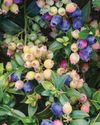
A Productive PATIO
Tiny fruit, vegetable and herb plants help gardeners maximize any sort of growing space
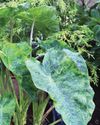
TROPICAL FUSION
A FUSS-FREE APPROACH TO USING BOLD TROPICAL PLANTS IN ANY TEMPERATE GARDEN

WINTER READING
Pass the time with any of these inspiring books
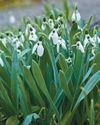
SENSING A PATTERN
Greg Coppa reflects on an odd weather year and what continued warming may mean for his Rhode Island garden
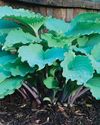
TOP-PRIZE PERENNIALS
A foliage masterpiece for shade and a late bloomer for sun

MARK WESSEL
What's new for fruit and vegetable gardeners?
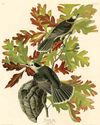
KINGS OF THE NORTHERN FORESTS
A look at the trees, shrubs and perennial plants that bolster life in Ecoregion 5

PROJECT FEEDERWATCH
Gardeners can help scientists know just where the birds are in winter